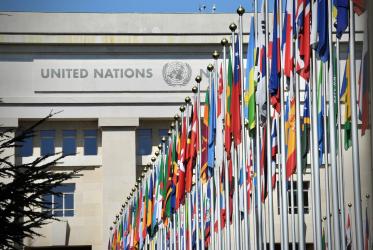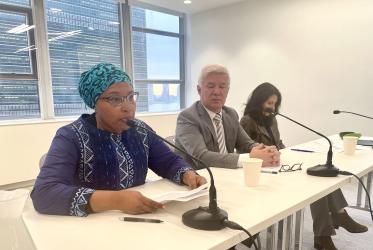Displaying 1 - 20 of 2212
Korea Easter prayer envisions “a daily life of peace”
28 March 2024
WCC expresses deep concern for human rights in Haiti
28 March 2024
What can churches do to prevent modern slavery?
22 February 2024
WCC at peace dialogue table with UN Security Council in Colombia
15 February 2024
WCC submits comments on draft UN “Pact for the Future”
12 February 2024
In Angola, WCC takes human rights approach to obstetric fistula
01 February 2024


















